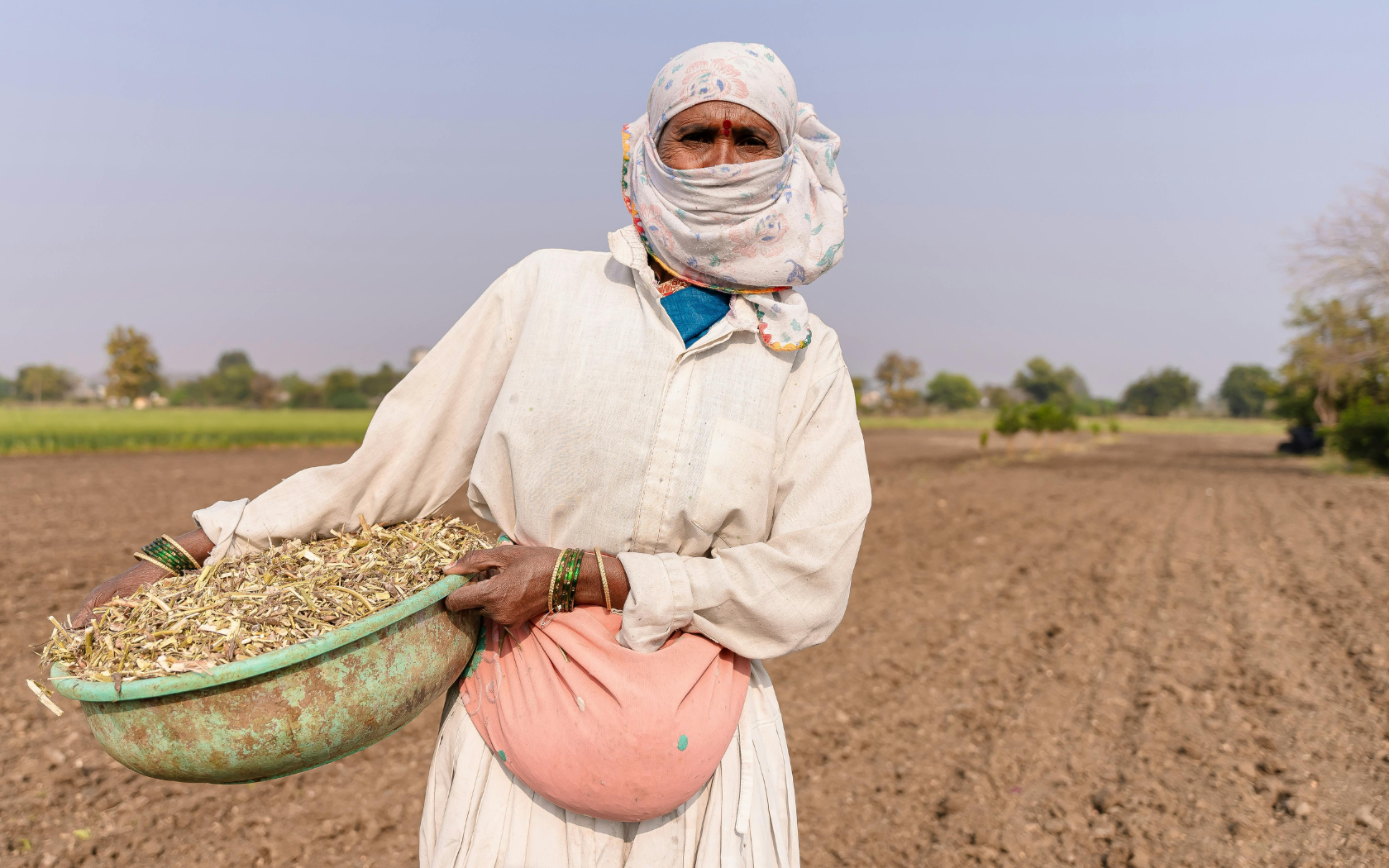Economy of love (in Egypt) and Andhra Pradesh Community Managed Natural Farming (in India) are examples of how agriculture is helping to improve our life on Earth.
Agriculture is one of the areas with the greatest potential to change the foundations of our planet. Small actions can transform processes and dynamics, allowing us to reconnect with essential values to preserve biodiversity. For this reason, we would like to talk about two projects that serve as examples of change: Economy of love (in Egypt) and Andhra Pradesh Community Managed Natural Farming (in India).
Economy of Love: biodynamic farming to prevent abandonment of the countryside
Naglaa Ahmed has been running this initiative for 30 years. It was not easy given her circumstances: a woman entrepreneur in a country like Egypt. Her goal was simple: to transform the way the land is cultivated and prevent the abandonment of the countryside.
The origin of Economy of Love goes back to 1977, when the current business leader SEKEM started to revitalise virgin land in the Egyptian desert through biodynamic agriculture, thus creating an agricultural initiative. It gradually evolved into an agro-economic group with businesses, NGOs, education and health care projects.
Building on that initiative, Economy of Love created this project to define holistic sustainability in society, economy, culture and environment. The ultimate goal is to promote regenerative agriculture. It does so by supporting biodynamic farmers, promoting positive impact production, sequestering carbon and defending biodiversity. In addition, the organisation guarantees transparency and fair wages.

Agricultural fields in Egypt. Editorial credit: Pexels.
The Economy of Love project was promoted by an association of organic farmers: the Egyptian Biodynamic Association. It is based on four dimensions of sustainable development: society, economy, culture and environment.
Andhra Pradesh Community Managed Natural Farming: an Indian agroecology project
This project was born under a delicate reality in the Indian state of Andhra Pradesh: many young people were migrating from rural to urban areas, farmers’ conditions were under great pressure, and there was a widespread loss of biodiversity. In response to all these crises, the Andhra Pradesh government decided to turn to natural farming as a way to solve them. It did so by increasing farmers’ net incomes, avoiding the use of synthetic fertilisers, pesticides and herbicides, and improving the nutritional integrity of food.

Woman farmer in India. Editorial credit: Pexels.
The programme has been implemented by Rythu Sadhikara Samantha, a non-profit enterprise set up by the Department of Agriculture, Government of Andhra Pradesh.
As regenerative agriculture, APCNF is redefining food and agricultural systems in Andhra Pradesh. One of the government’s major achievements has been the rapid expansion of natural farming, increasing from 40,000 in 2016 to about 750,000 farmers and farm workers by 2021. In addition, the APCNF programme has been recognised as the largest agroecology programme in the world in terms of the number of farmers enrolled.




